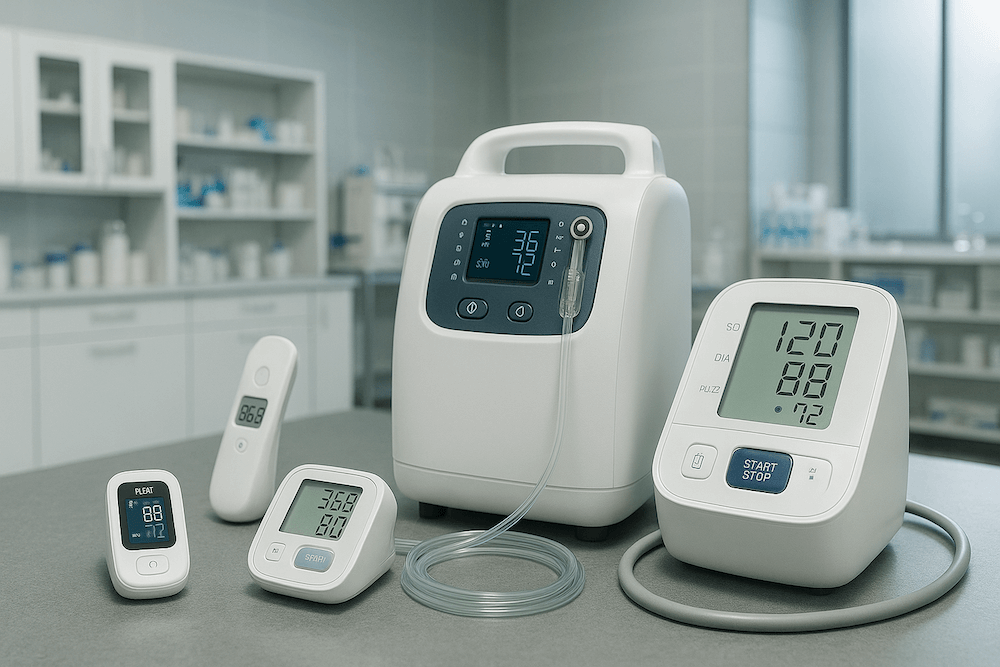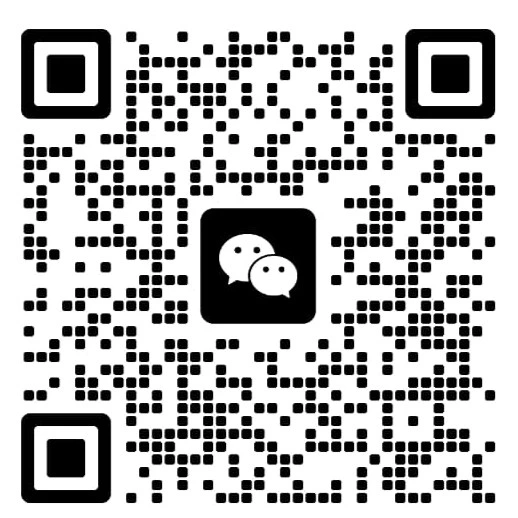Indonesia merupakan salah satu pasar alat kesehatan dengan pertumbuhan tercepat di Asia Tenggara. Dengan populasi lebih dari 270 juta jiwa dan sektor kesehatan yang berkembang pesat, permintaan alat kesehatan terus meningkat, menjadikan layanan registrasi alat kesehatan di Indonesia semakin penting. Namun, bagi produsen asing, memasuki pasar ini tidak semudah mengirimkan produk dan mencari distributor. Sudahkah Anda mempertimbangkan Indonesia sebagai tujuan ekspansi pasar portofolio Anda? Apakah Anda kesulitan memahami dari mana harus memulai?
Semua alat kesehatan harus melalui proses registrasi yang ketat di Kementerian Kesehatan Indonesia (Kemenkes) sebelum dapat dipasarkan secara legal. Persyaratan ini menjamin keamanan, kualitas, dan kemanjuran, tetapi juga berarti produsen menghadapi kendala regulasi yang signifikan. Itulah sebabnya layanan registrasi alat kesehatan profesional di Indonesia menjadi sangat penting bagi perusahaan-perusahaan dari Eropa, Tiongkok, dan Amerika Serikat yang ingin membangun kehadiran mereka.
Lanskap Regulasi di Indonesia
Regulasi alat kesehatan di Indonesia diawasi oleh Kementerian Kesehatan melalui platform daring khusus yang disebut Regalkes untuk registrasi alat kesehatan.
Semua aplikasi diajukan melalui portal daring Regalkes Kementerian Kesehatan, yang selaras dengan standar ASEAN. Kerangka kerja ini mengikuti standar internasional seperti Arahan Alat Kesehatan ASEAN (AMDD) dan mempertimbangkan praktik terbaik global. Registrasi wajib untuk semua kelas alat kesehatan, mulai dari alat kesehatan habis pakai berisiko rendah hingga alat implan berisiko tinggi.
- Dasar hukum: Peraturan Menteri Kesehatan (Permenkes) No. 62 Tahun 2017 yang mengatur kewajiban memperoleh Nomor Izin Edar (NIE) untuk semua alat kesehatan sebelum diimpor/dipasarkan.
- Klasifikasi: Alat kesehatan dikategorikan ke dalam empat kelas risiko (A, B, C, D) mengikuti kerangka kerja AMDD, mulai dari alat berisiko rendah hingga alat berisiko tinggi. Alat kesehatan diklasifikasikan ke dalam empat kategori risiko: *Kelas A (risiko rendah), Kelas B (rendah-sedang), Kelas C (sedang-tinggi), dan Kelas D (risiko tinggi).
- Perwakilan: Produsen asing tidak dapat mendaftarkan produk secara langsung. Mereka harus menunjuk akupemegang lisensi lokal atau distributor yang terdaftar di MoH.
- Kementerian Kesehatan kini mewajibkan sertifikat CDAKB (Cara Distribusi yang Baik) sebagai prasyarat registrasi produk mulai 1 Juli 2024. Hal ini menegaskan pentingnya arahan para ahli dalam mengikuti aturan terbaru.
Untuk melihat lebih dalam tentang klasifikasi, lihat artikel kami tentang Jenis Alat Kesehatan dan Klasifikasinya di Indonesia.
Mengapa Produsen Asing Menghadapi Tantangan
Meskipun kerangka regulasinya jelas, pelaksanaan praktisnya bervariasi tergantung pada negara asal, sehingga menimbulkan permasalahan yang berbeda bagi produsen:
???????? Eropa (Pemegang Tanda CE)
- Produsen Eropa sering berasumsi bahwa sertifikasi CE menjamin persetujuan otomatis di Indonesia. Namun, Kementerian Kesehatan mewajibkan dokumentasi lokal, termasuk pelabelan dalam Bahasa Indonesia dan penunjukan pemegang lisensi lokal.
- Dokumen teknis tambahan, seperti Berkas Induk Perangkat (DMF) harus selaras dengan pola Indonesia, bukan hanya standar MDR Uni Eropa.
- Bahkan dengan adanya Tanda CE, regulator Indonesia tetap memerlukan sertifikasi lokal berkas yang diformat dan kepatuhan terhadap persyaratan nasional
- Produsen Eropa (dan semua produsen asing) harus menerbitkan LoA yang menunjuk perwakilan lokal. Perlu diketahui bahwa LoA ini harus diaktakan dan dilegalisasi atau diapostille untuk diterima oleh Kementerian Kesehatan
Tiongkok
- Perusahaan-perusahaan Tiongkok menghadapi tantangan dalam legalisasi dan penerjemahan dokumen. Dokumen Sertifikat Penjualan Bebas (CFS) dan Cara Pembuatan Obat yang Baik (GMP) harus dilegalkan atau diapostille, suatu proses yang dapat memakan waktu beberapa bulan untuk proses pendaftaran. Indonesia bergabung dengan Konvensi Apostille pada tahun 2022, yang berarti dokumen dari berbagai negara dapat dilegalisasi melalui apostille, alih-alih dilegalisasi secara konsuler. Namun, karena Tiongkok bukan anggota konvensi tersebut, produsen Tiongkok masih menghadapi proses legalisasi konsuler yang lebih lama, yang seringkali memakan waktu berminggu-minggu. Hal ini menekankan perlunya bimbingan profesional untuk menangani langkah-langkah ini secara efisien.
- Banyak produsen Tiongkok juga meremehkan pentingnya Sertifikasi CDAKB (Praktik Distribusi yang Baik untuk Alat Kesehatan) untuk mitra lokal mereka. Per tahun 2024, memiliki distributor lokal dengan sertifikat CDAKB adalah wajib untuk pendaftaran baru, yang mungkin diabaikan oleh banyak perusahaan dari China (dan tempat lain).
Kiat PRO Orang Dalam: Bagi produsen Tiongkok, sangat penting untuk menyatakan dengan jelas wilayah, distrik, dan subdistrik yang tepat lokasi perusahaan dan pabrik, dan memberikan surat keterangan resmi dari kantor pemerintah masing-masing. Selain itu, Kementerian Kesehatan sering kali mensyaratkan surat keterangan resmi surat informasi yang mengonfirmasi apakah produsen beroperasi sebagai OEM
???????? Amerika Serikat (Pemegang Persetujuan FDA)
- Meskipun persetujuan FDA menunjukkan kualitas produk, Indonesia memerlukan jalur pendaftaran berbasis risiko yang berbeda.
- Kementerian Kesehatan Indonesia masih akan melakukan tinjauan teknis bahkan untuk perangkat yang disetujui FDA, dan untuk perangkat berisiko tinggi (Kelas C dan D), mereka mungkin meminta bukti klinis tambahan atau laporan format khusus untuk memenuhi standar lokal
- Persyaratan pelabelan lebih ketat: Petunjuk Penggunaan Bahasa Indonesia (IFU) harus diserahkan. Oleh karena itu, Petunjuk Penggunaan (IFU) dan label harus diterjemahkan, yang merupakan kendala umum.
- Beberapa perangkat berisiko tinggi memerlukan tambahan laporan evaluasi klinis sesuai dengan standar Indonesia, meskipun data FDA yang luas sudah tersedia.

Layanan Registrasi Alat Kesehatan di Indonesia Dijelaskan
Layanan registrasi profesional dirancang untuk membantu produsen mengatasi kendala ini secara efisien. Di Product Registration Indonesia (PRI), layanan biasanya meliputi:
- Klasifikasi Risiko & Konsultasi Pra-Pengajuan
- Identifikasi kelas yang benar (A–D) berdasarkan aturan MoH dan AMDD.
- Mengembangkan strategi pengelompokan atau bundling untuk mengoptimalkan pendaftaran dapat menghemat waktu & biaya.
Kita sering menemukan produsen membuang waktu berbulan-bulan mendaftarkan barang secara terpisah yang bisa digabungkan – seorang ahli mencegah kesalahan seperti itu
- Persiapan Dokumen & Berkas
- Kompilasi dokumen hukum: LoA, CFS, GMP, ISO 13485.
- Pembuatan berkas teknis: Berkas Induk Perangkat, evaluasi klinis, dan pelabelan.
Setiap dokumen – mulai dari LoA dan CFS yang telah dilegalisasi hingga Berkas Induk Perangkat – harus sesuai dengan templat Indonesia. Informasi yang hilang atau tidak sesuai dapat memicu pertanyaan dari Kementerian Kesehatan dan menunda persetujuan. Tim kami memastikan semua dokumentasi sudah benar sejak awal.
- Lisensi Distributor (IDAK) & Sertifikasi CDAKB
- Bantuan pengurusan IDAK (Izin Distribusi Alat Kesehatan) bagi mitra lokal yang kini memerlukan pemenuhan standar CDAKB.
- Kami memandu mitra lokal melalui proses audit dan sertifikasi CDAKB, yang sekarang menjadi prasyarat penting untuk pendaftaran produk.
- Registrasi Produk (NIE)
- Pengiriman melalui Sistem Regalkes.
- Menangani klarifikasi data dan tindak lanjut dengan evaluator MoH.
Setelah pengajuan melalui Regalkes dan pembayaran biaya (PNBP), peninjauan oleh Kementerian Kesehatan dapat memakan waktu 2 hingga 4 bulan, tergantung kelas alat. Setelah disetujui, lisensi NIE berlaku selama 5 tahun dan harus diperbarui agar alat dapat terus dipasarkan.
- Pemegang Lisensi & Kustodian
- Bagi produsen tanpa entitas lokal, PRI menawarkan layanan pemegang lisensi netral.
- Pengaturan ini memastikan bahwa perusahaan tidak terikat pada satu distributor, menjaga fleksibilitas dalam strategi pasar.
Tanpa pemegang lisensi netral, berpindah distributor berarti memulai pendaftaran baru dari awal, yang menyebabkan penundaan yang mahal. Layanan kustodian kami mencegah skenario tersebut, memberikan fleksibilitas kepada produsen dalam strategi pemasaran mereka.
Ikhtisar Proses Langkah demi Langkah
Berikut ini adalah ikhtisar sederhana tentang proses registrasi alat kesehatan di Indonesia:
| Panggung | Kegiatan Utama | Pihak yang Bertanggung Jawab |
| 1. Klasifikasi | Tentukan kelas risiko (A–D) | Produsen + Konsultan |
| 2. Persiapan Dokumen | Dokumen hukum, berkas teknis, sertifikat ISO | Produsen + Konsultan |
| 3. Perwakilan Lokal | Pengangkatan pemegang lisensi memperoleh IDAK (dengan pengawasan Kementerian Kesehatan) | Distributor / Konsultan Lokal |
| 4. Pengajuan | Unggah berkas melalui sistem online Regalkes, bayar biaya administrasi negara (PNBP) | Konsultan |
| 5. Evaluasi | Klarifikasi, tinjauan teknis oleh Kementerian Kesehatan (evaluator Kementerian Kesehatan dapat meminta klarifikasi atau dokumen tambahan; menanggapi dengan segera sangat penting untuk menghindari penolakan) | Konsultan |
| 6. Persetujuan | Penerbitan NIE (Nomor Izin Edar). Perangkat Kelas A terkadang dapat disetujui dalam beberapa minggu jika mudah, sedangkan perangkat Kelas D mungkin memerlukan waktu beberapa bulan. | Kementerian Kesehatan |
| 7. Pasca-persetujuan | Pembaruan NIE dan pengawasan pasca-pemasaran (NIE berlaku selama 5 tahun; pembaruan diperlukan untuk kelanjutan penjualan) | Distributor / Konsultan Lokal |
Untuk informasi lebih lanjut mengenai NIE dan peran strategisnya, silakan lihat artikel kami di Registrasi Alat Kesehatan di Indonesia: NIE, Kelas Risiko & Strategi Regulasi.
Mengapa Bekerja dengan Ahlinya Konsultan Seperti Registrasi Produk Indonesia
Bermitra dengan konsultan khusus memberikan tiga keuntungan utama:
- Efisiensi & Akurasi – Hindari keterlambatan akibat ketidaklengkapan dokumentasi atau kesalahpahaman terhadap persyaratan setempat.
Lebih dari 50% pengajuan awal oleh perusahaan-perusahaan baru di Indonesia menerima permintaan koreksi atau penambahan data – kami berusaha untuk melakukannya dengan benar sejak awal untuk menghindari penundaan tersebut
- Penghubung Regulasi – PRI bertindak sebagai jembatan antara produsen asing dan Kementerian Kesehatan Indonesia.
Konsultan kami selalu mengikuti perkembangan persyaratan terbaru dari Kementerian Kesehatan dan menjaga komunikasi dengan regulator, sehingga segala klarifikasi selama evaluasi dapat ditangani dengan lancar.
- Fleksibilitas Pasar – Dengan layanan pemegang lisensi, perusahaan dapat mempertahankan kendali atas registrasi produk mereka, mengganti distributor jika diperlukan tanpa kehilangan persetujuan regulasi.
Kesimpulan
Memasuki pasar alat kesehatan Indonesia menawarkan potensi yang luar biasa, tetapi membutuhkan kepatuhan yang ketat terhadap peraturan Kementerian Kesehatan. Setiap langkah—mulai dari klasifikasi dan penyiapan dokumen hingga sertifikasi CDAKB dan persetujuan NIE—membutuhkan keahlian dan wawasan lokal.
Itulah sebabnya bekerja dengan konsultan tepercaya bukan sekadar kenyamanan, tetapi keputusan strategis yang memastikan kelancaran masuk pasar.
Di Product Registration Indonesia, kami spesialis dalam layanan registrasi alat kesehatan di Indonesia. Hubungi kami hari ini untuk konsultasi gratis dan temukan bagaimana kami dapat membantu Anda memasarkan produk Anda lebih cepat dan dengan kepatuhan penuh.
Singkatnya, mematuhi peraturan Kementerian Kesehatan merupakan tantangan; bermitra dengan pakar untuk layanan registrasi alat kesehatan di Indonesia mengubahnya menjadi proses yang lancar.
Jangan biarkan hambatan regulasi menunda masuknya Anda — Hubungi kami hari ini untuk konsultasi gratis.



